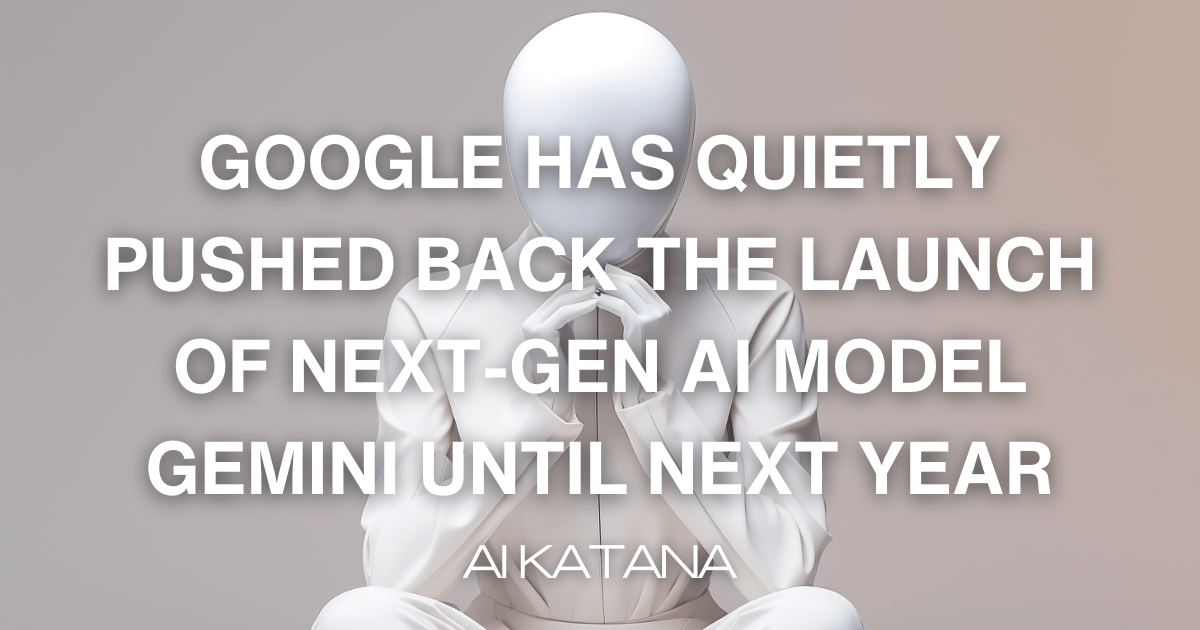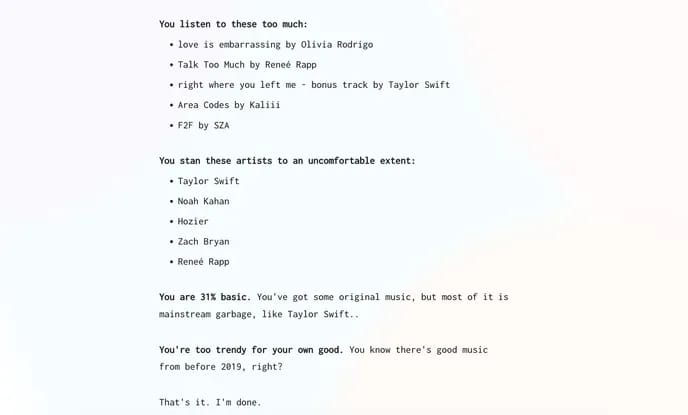- AI KATANA
- Posts
- Google has quietly pushed back the launch of next-gen AI model Gemini until next year
Google has quietly pushed back the launch of next-gen AI model Gemini until next year
Also: AstraZeneca ties up with AI biologics company to develop cancer drug

Hi!
In today’s newsletter, we explore significant developments in the AI sector. Google has delayed the release of its anticipated Gemini AI model to 2024, addressing challenges with non-English prompts. AstraZeneca and Absci Corporation's $247 million deal marks a significant stride in AI-powered cancer drug development. Meanwhile, Alibaba Cloud introduces Tongyi Qianwen, a cutting-edge AI language model surpassing OpenAI's GPT-3.5 and GPT-4. In defense, the US, UK, and Australia plan to trial AI for tracking Chinese submarines in the Pacific, enhancing their military capabilities. The G7 ministers have established the first global guidelines for generative AI, focusing on trustworthy use and misinformation control. In a lighter vein, a new satirical tool humorously critiques personal music tastes using user data from Spotify and Apple Music. Finally, in the venture capital realm, Syrup Tech has raised $17.5 million to expand its AI-powered inventory forecasting platform, demonstrating AI's growing influence in retail technology.
Sliced:
🕔 Google has quietly pushed back the launch of next-gen AI model Gemini until next year
💊 AstraZeneca ties up with AI biologics company to develop cancer drug
🤖 Alibaba unveils new Tongyi Qianwen AI language model
🚢 US Navy says it will trial using AI to track Chinese submarines in the Pacific
📃 G7 agrees on first comprehensive guidelines for generative AI
Google has postponed the launch of its next-generation AI model, Gemini, to early 2024. The delay is attributed to challenges in handling non-English prompts. Gemini, described as a multimodal AI capable of processing and generating various types of data, including text, images, and websites, is expected to significantly outperform existing models like OpenAI's GPT-4. The launch, which includes events in New York, Washington, and California, was rescheduled due to concerns about the AI's performance with some non-English inputs.
AstraZeneca has partnered with Absci Corporation in a deal valued at up to $247 million to develop a cancer-fighting antibody. This collaboration will utilize Absci's AI technology for large-scale protein analysis in pursuit of effective oncology therapies. This agreement is part of a broader trend of partnerships between large pharmaceutical companies and AI startups to create innovative disease treatments and reduce development costs. The deal includes upfront research and development funding for Absci, milestone payments, and sales royalties.
Alibaba Cloud, a unit of Alibaba Group, has unveiled Tongyi Qianwen, a new open-source artificial intelligence-powered language model with 72 billion parameters. Named Qwen-72B, it outperforms OpenAI's GPT-3.5 and GPT-4 in several tasks, showing enhanced capabilities in English and Chinese language understanding, mathematical reasoning, and coding. The company has also introduced models with 1.8 billion parameters and an audio model, Qwen-Audio, furthering the open-source ecosystem's role in advancing AI technology in China.
The US, UK, and Australia are planning to trial the use of artificial intelligence (AI) to track Chinese submarines in the Pacific, as part of the Aukus Pillar II alliance. This move aims to counter China's growing military assertiveness in the region. The AI will be used on patrol aircraft, like the US P-8A Poseidon, to process information from underwater detection devices. This initiative is expected to improve speed and accuracy in tracking Chinese submarines and strengthen anti-submarine warfare capabilities. Additionally, the countries are collaborating in other technological areas such as quantum technologies, electronic warfare, and hypersonic weapons.
The Group of Seven (G7) digital and technology ministers have agreed on the world's first comprehensive international guidelines for generative AI. These guidelines apply to both developers and users of AI, with a focus on addressing issues like misinformation. The new principles include a voluntary code of conduct for AI developers, a 12th principle emphasizing trustworthy and responsible AI use, and measures for identifying AI-generated content. Additionally, the guidelines promote data privacy and intellectual property protection, and are part of the Hiroshima AI Process aimed at setting international AI standards.
🛠️ AI tools updates
This satirical tool, which does not use real AI, generates personalized jokes by analyzing the user's artist, album, genre, and track data. It's intended to be a fun, light-hearted experience, allowing users to see their music preferences through a comically critical lens. The tool is accessible to both Spotify and Apple Music users, providing an amusing take on one's music listening habits.

💵 Venture Capital updates
Syrup Tech, an AI-powered inventory forecasting platform, has raised $17.5 million in a Series A funding round. This investment will enhance their platform, which simplifies inventory buying, allocation, replenishment, and rebalancing for brands in omnichannel commerce. Syrup's AI technology integrates various data types to improve forecast accuracy, reduce overproduction, and address stockouts. The funding, led by Accel Partners, will support team expansion in engineering, product, and sales, underscoring Syrup's contribution to AI-powered retail technology and addressing significant inventory challenges in the industry.
🫡 Meme of the day

⭐️ Generative AI image of the day

Before you go, check out Google's new AI experiment lets you create music inspired by instruments.
